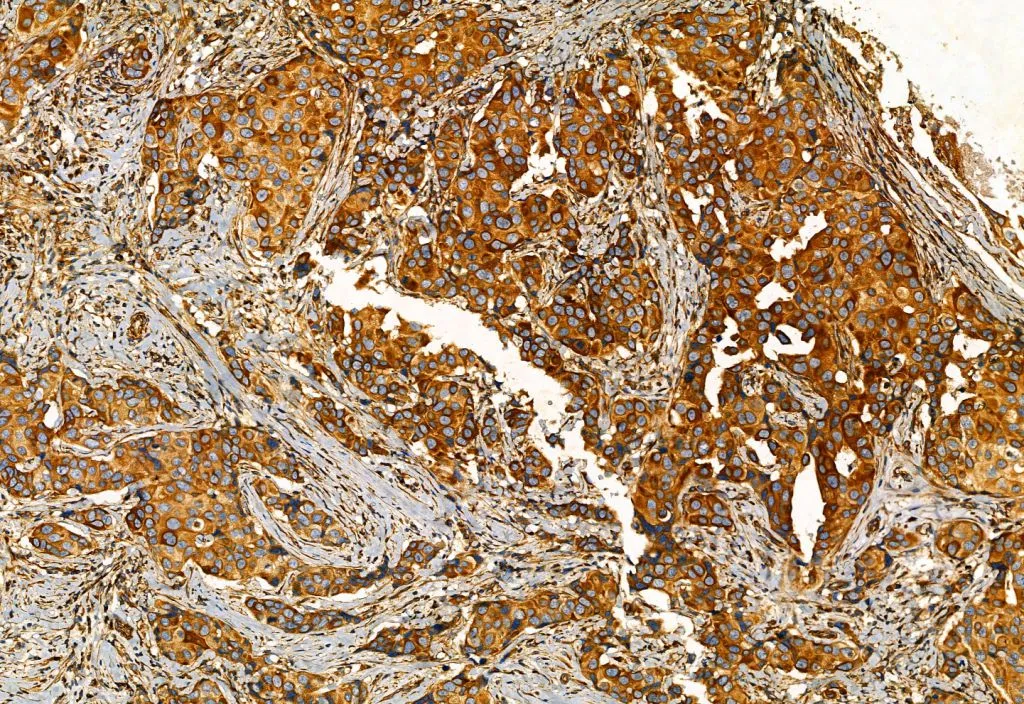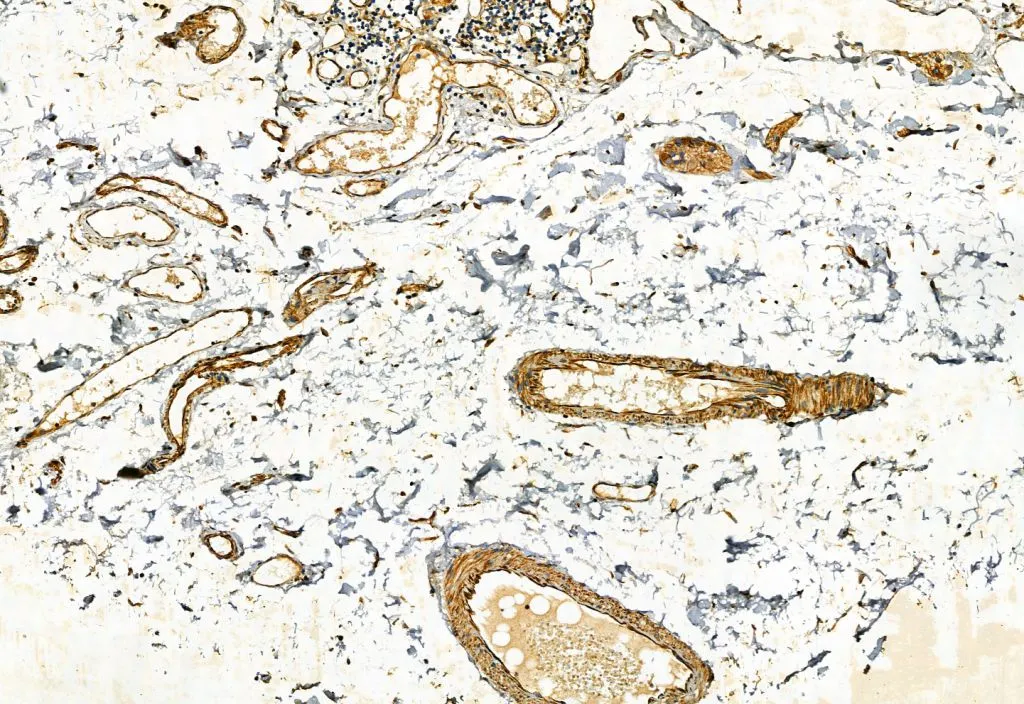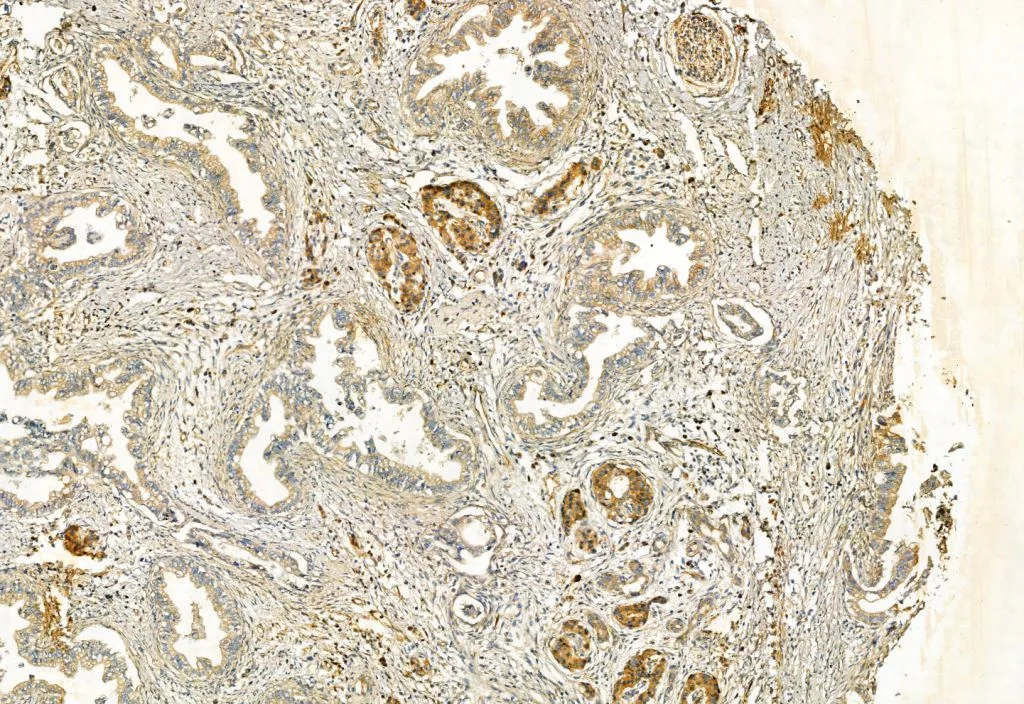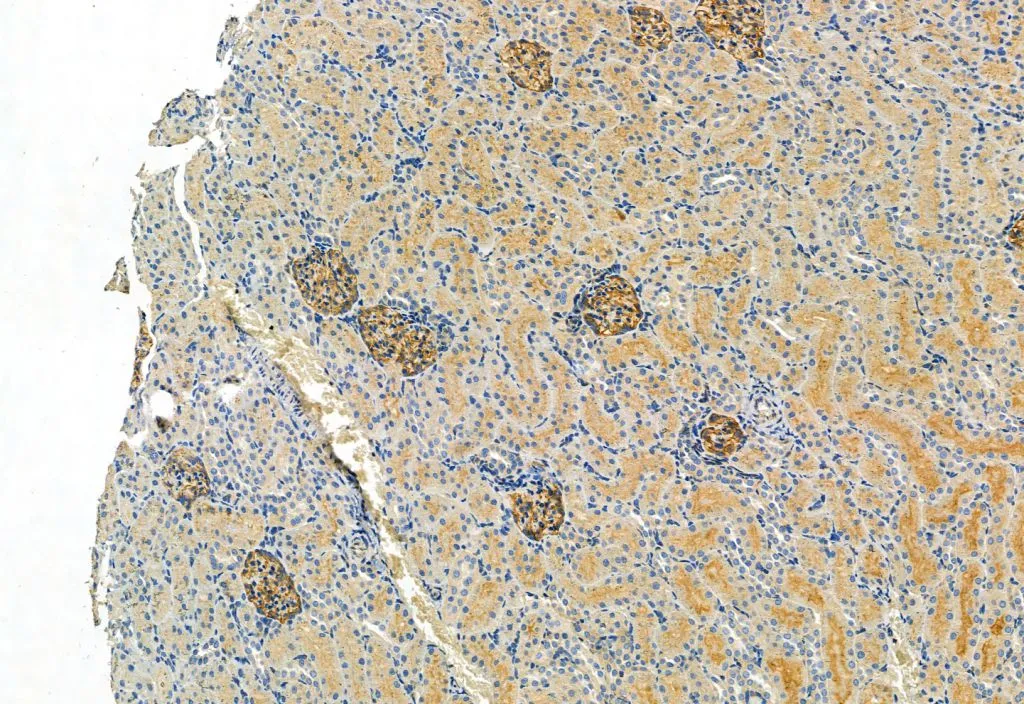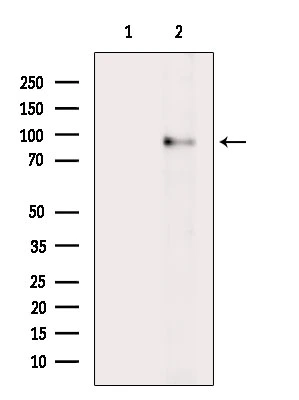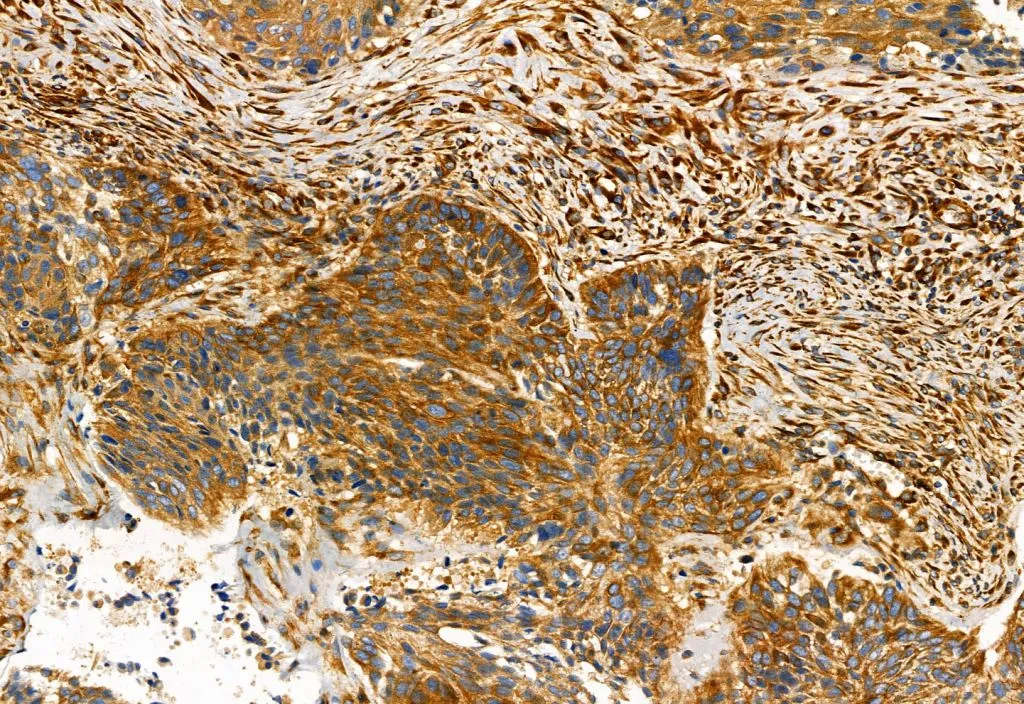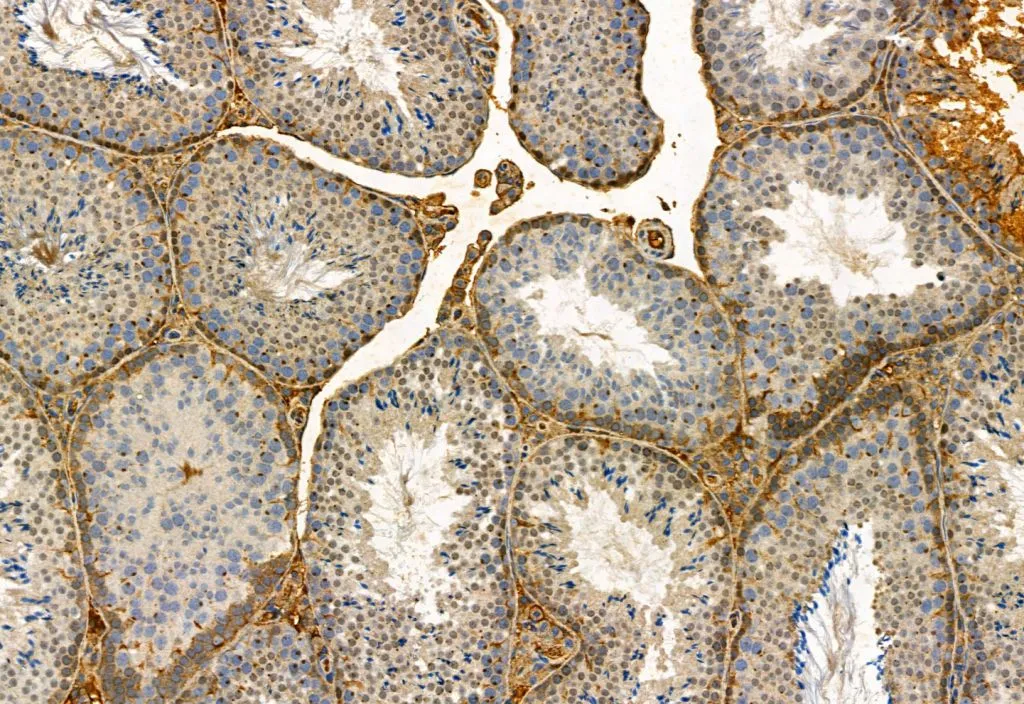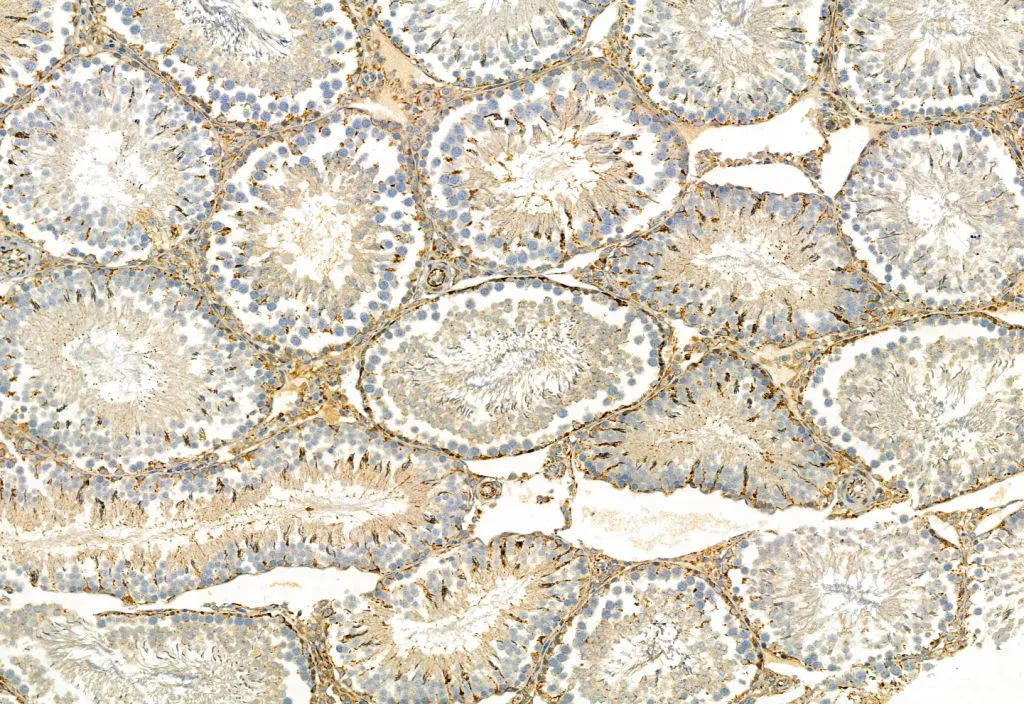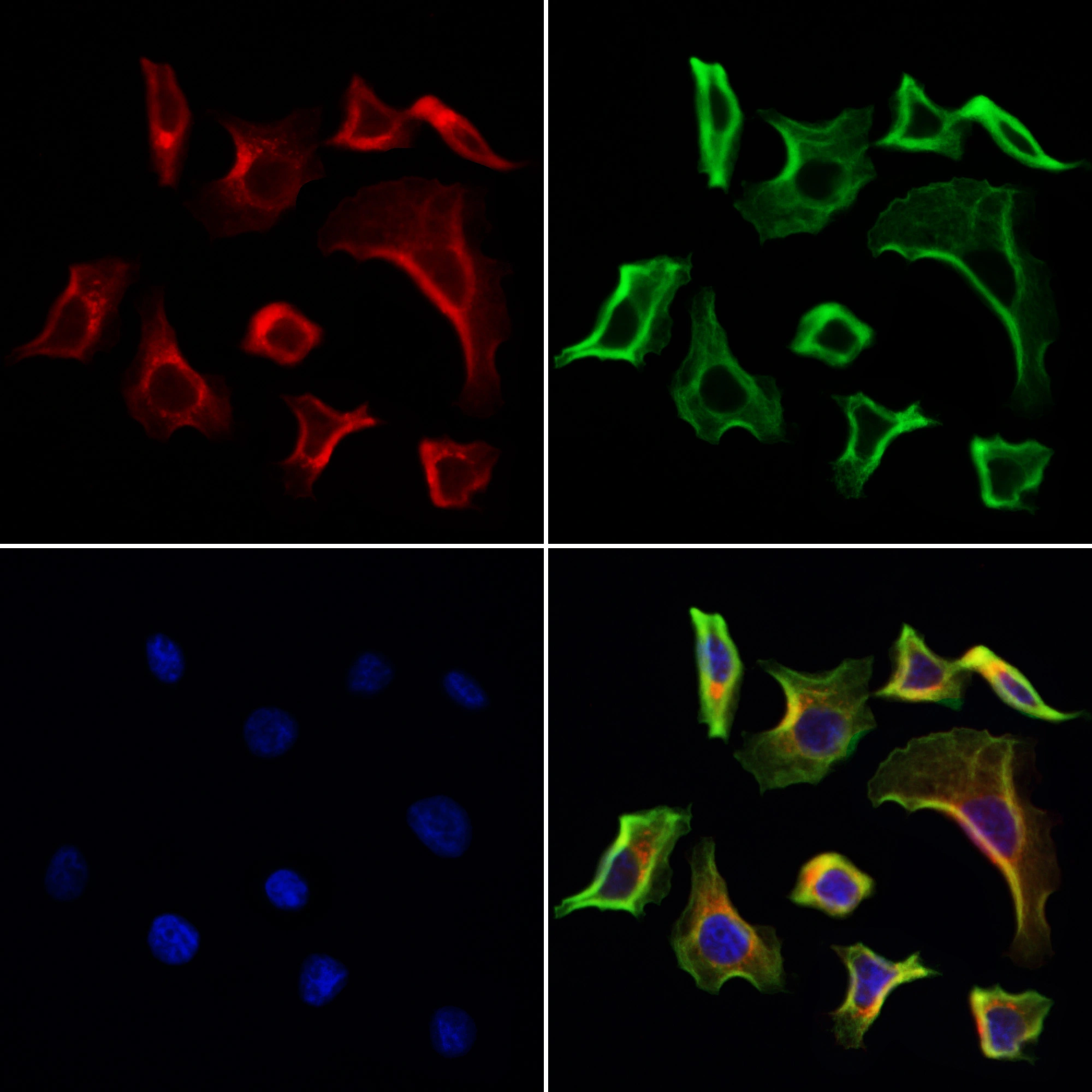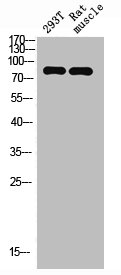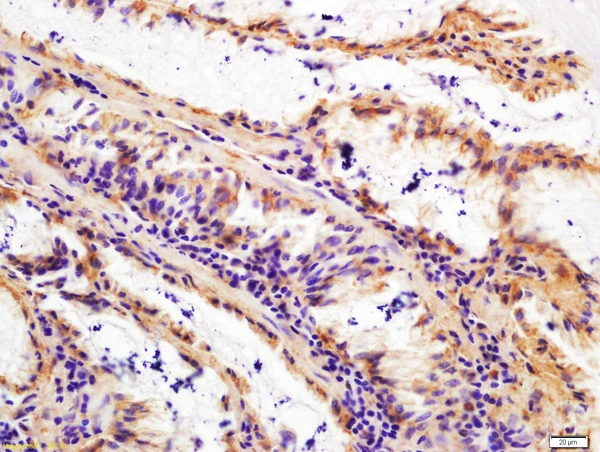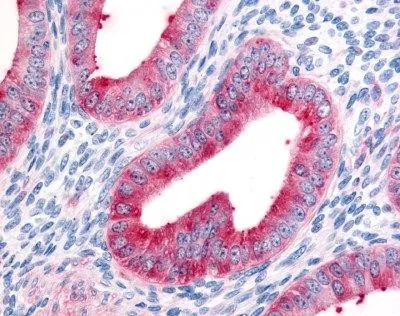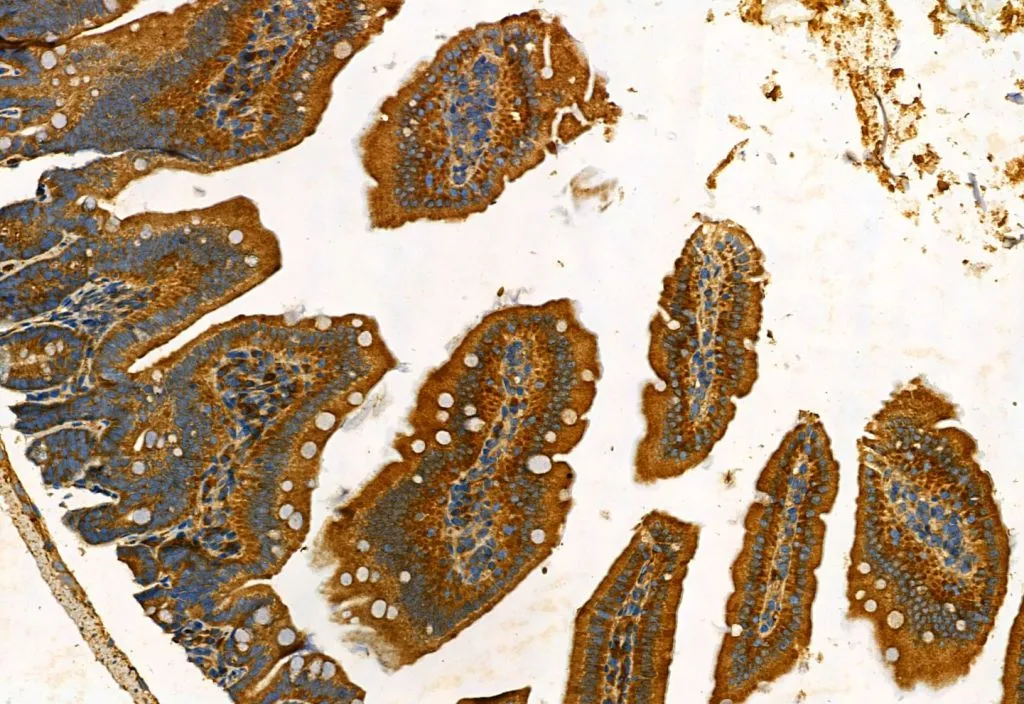
IHC-P analysis of mouse colon tissue using GTX04673 FAP antibody. Antigen retrieval : Heat mediated citrate buffer Dilution : 1:100
FAP antibody
GTX04673
ApplicationsImmunoFluorescence, Western Blot, ImmunoCytoChemistry, ImmunoHistoChemistry, ImmunoHistoChemistry Paraffin
Product group Antibodies
ReactivityHuman, Mouse, Rat
TargetFAP
Overview
- SupplierGeneTex
- Product NameFAP antibody
- Delivery Days Customer9
- Application Supplier NoteWB: 1:500-1:2000. ICC/IF: 1:100-1:500. IHC-P: 1:50-1:200. *Optimal dilutions/concentrations should be determined by the researcher.Not tested in other applications.
- ApplicationsImmunoFluorescence, Western Blot, ImmunoCytoChemistry, ImmunoHistoChemistry, ImmunoHistoChemistry Paraffin
- CertificationResearch Use Only
- ClonalityPolyclonal
- Concentration1 mg/ml
- ConjugateUnconjugated
- Gene ID2191
- Target nameFAP
- Target descriptionfibroblast activation protein alpha
- Target synonymsDPPIV, FAPA, FAPalpha, SIMP, prolyl endopeptidase FAP, 170 kDa melanoma membrane-bound gelatinase, dipeptidyl peptidase FAP, gelatine degradation protease FAP, integral membrane serine protease, post-proline cleaving enzyme, seprase, surface-expressed protease
- HostRabbit
- IsotypeIgG
- Protein IDQ12884
- Protein NameProlyl endopeptidase FAP
- Scientific DescriptionThe protein encoded by this gene is a homodimeric integral membrane gelatinase belonging to the serine protease family. It is selectively expressed in reactive stromal fibroblasts of epithelial cancers, granulation tissue of healing wounds, and malignant cells of bone and soft tissue sarcomas. This protein is thought to be involved in the control of fibroblast growth or epithelial-mesenchymal interactions during development, tissue repair, and epithelial carcinogenesis. Alternatively spliced transcript variants encoding different isoforms have been found for this gene. [provided by RefSeq, Apr 2014]
- ReactivityHuman, Mouse, Rat
- Storage Instruction-20°C or -80°C,2°C to 8°C
- UNSPSC41116161

